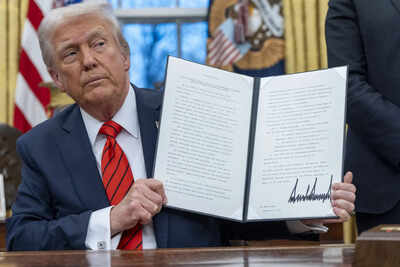On February 10, 2025, President Donald Trump issued an govt order pausing enforcement of the International Corrupt Practices Act (FCPA) for at the very least 180 days. This transfer has sparked intense debate over whether or not it successfully legalizes bribery for American companies working abroad—or if it merely removes what some see as pointless obstacles to US financial competitiveness.
What Is the FCPA?
Enacted in 1977, the FCPA prohibits American corporations from bribing international officers to safe enterprise offers. The regulation was designed to fight corruption and degree the enjoying subject, stopping unethical enterprise practices that would undermine worldwide markets. Nevertheless, in recent times, FCPA enforcement has expanded considerably, with aggressive prosecutions and big fines imposed on US corporations and executives.
Whereas the regulation was initially meant to focus on clear instances of corruption, critics argue that it has been stretched too far, punishing corporations for widespread enterprise practices in international locations the place casual funds are sometimes the norm. Some US companies consider that strict FCPA enforcement has put them at an obstacle in comparison with international rivals who function beneath fewer restrictions.
What Does Trump’s Government Order Do?
The order briefly halts new FCPA investigations and enforcement actions for 180 days whereas the Division of Justice (DOJ) critiques its method to the regulation. Particularly, it directs the Legal professional Normal to:
- Pause new FCPA instances, until an exception is granted.
- Assessment all ongoing FCPA investigations and decide if they need to proceed.
- Develop new pointers to restrict FCPA enforcement to instances that actually threaten US pursuits.
- Prolong the evaluate interval by one other 180 days if wanted.
As soon as new enforcement insurance policies are in place, any future FCPA case should obtain private approval from the Legal professional Normal—a significant shift that would considerably scale back prosecutions.
Why Is This Occurring?
The Trump administration argues that overzealous FCPA enforcement hurts US companies and nationwide safety by making it tougher for American corporations to compete globally. The order means that FCPA prosecutions waste federal assets and intervene with presidential authority over international affairs.
The White Home claims that gaining strategic enterprise benefits—reminiscent of securing entry to essential minerals, deep-water ports, and key infrastructure—is crucial for US financial and nationwide safety. In keeping with the administration, present FCPA enforcement makes it tougher for American companies to function in international markets and provides an edge to worldwide rivals who will not be certain by related legal guidelines.
What Are the Potential Penalties?
- For US companies: Many corporations might really feel freer to interact in transactions that beforehand carried authorized dangers. Some might even see this as a possibility to develop operations in high-growth markets with out concern of prosecution.
- For corruption and ethics: Critics warn that this transfer weakens anti-corruption efforts and will encourage bribery, damaging America’s fame overseas. It could additionally pressure relationships with allies that prioritize anti-bribery measures.
- For future FCPA enforcement: Whereas the order doesn’t repeal the FCPA, it considerably limits its impression. Relying on the DOJ’s closing evaluate, the regulation might be completely weakened or enforced solely in excessive instances.
The Backside Line
Trump’s govt order is a significant shift in US anti-corruption coverage. Whereas it’s framed as a approach to defend American enterprise pursuits, it raises issues in regards to the erosion of moral requirements in international commerce. The long-term results will rely on how the DOJ reshapes enforcement and whether or not future administrations select to revive the FCPA’s full energy.




